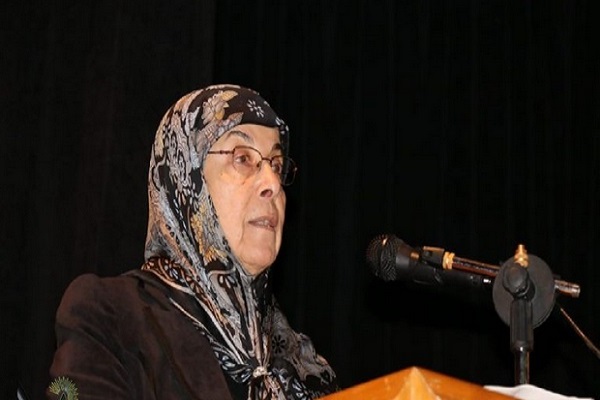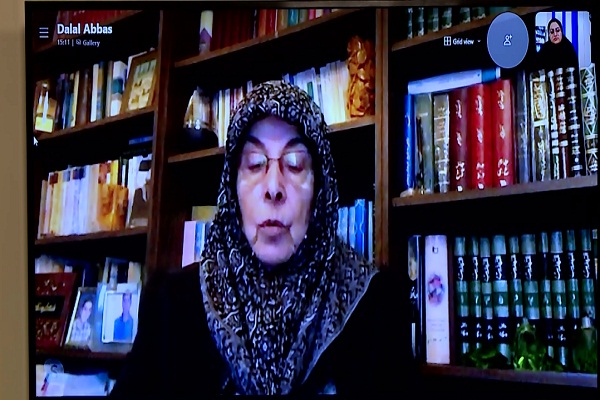Iran’s Islamic Revolution an Uprising for Defending World Oppressed: Expert

Addressing an international webinar on the Islamic Revolution’s achievements, Dallal Abbas, who is an Iranologist and professor of Persian Language at the University of Sidon, said Iran’s current support for Venezuela is for the same reason that the Islamic Republic of Iran supports not only Muslims but also all of the oppressed and every nation resisting the US hegemony and excessive demands.
Elaborating on the features of the Islamic Republic that was founded after the victory of the Islamic Revolution, she said that in the Shah’s regime, the ruler had absolute power, but in the Islamic Republic, the Leader is indirectly elected by the people and the president is chosen by direct vote of the people.
According to Iran’s Constitution, the rulers are committed to acting according to the laws and are accountable for the actions, she added.
Dallal also said what makes the Islamic Republic different from other political systems is that it has been established based on Islamic principles and that people have chosen it and play a major role in running the country.
She also highlighted the respect for the rights of religious minorities in Iran, noting that followers of other religions and denominations practice their religion freely and have representatives in the parliament, too.

The “Islamic Revolution; Reflections, Perspective and Emerging Issues” was held on Wednesday, ahead of the 42nd anniversary of the Islamic Revolution’s victory.
A number of scholars and thinkers from Iran, Lebanon, the UK, Malaysia, Pakistan, and Iraq delivered speeches at the online event, discussing different aspects of the Islamic Revolution of Iran and the Islamic Republic.
Every year, millions of Iranians across the country observe ten days of celebrations marking the anniversary of the victory of the 1979 Islamic Revolution that put an end to the monarchy of the US-backed Pahlavi regime in the country.
The day of Imam Khomeini’s return to Iran marks the beginning of the Ten Day Fajr (Ten Days of Dawn), which culminates with rallies on the anniversary of the victory of the Islamic Revolution on February 11.
The Iranian nation toppled the US-backed Pahlavi regime 42 years ago, ending the 2,500 years of monarchic rule in the country.
The Islamic Revolution spearheaded by the late Imam Khomeini established a new political system based on Islamic values and democracy.



